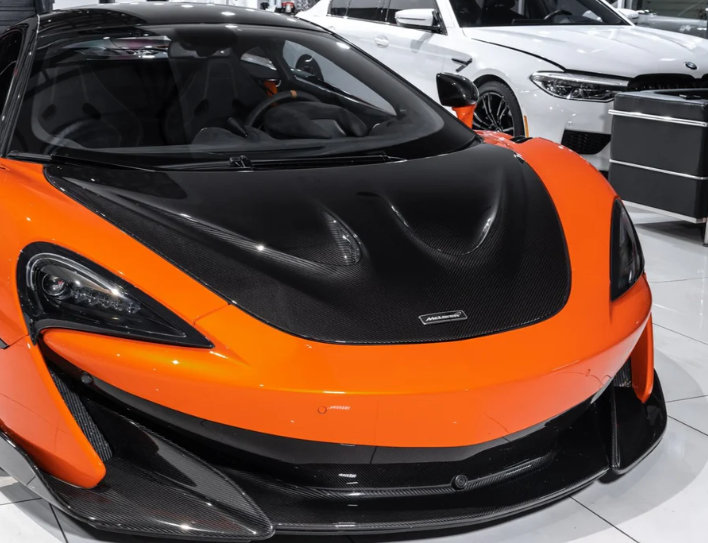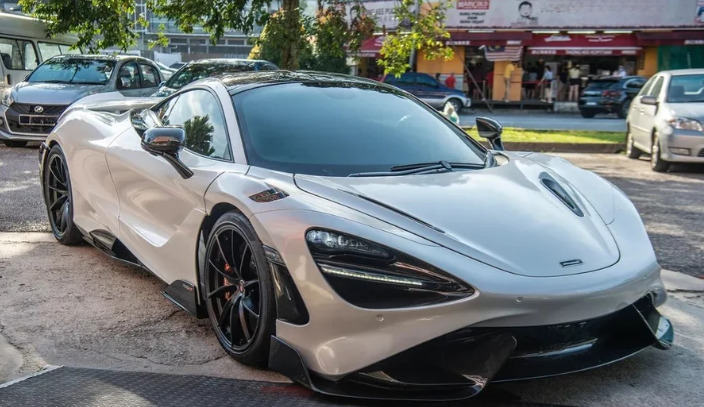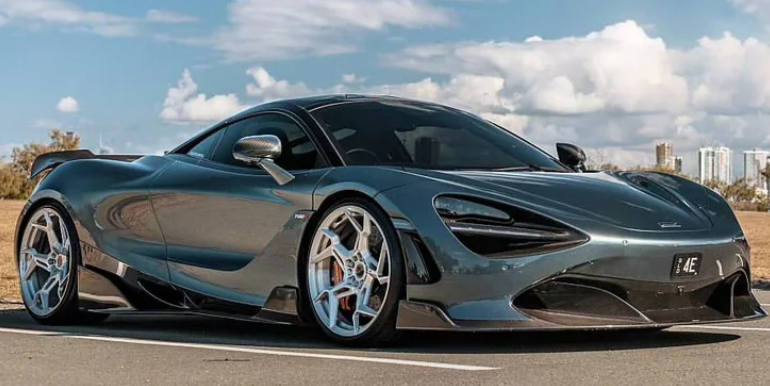When it comes to improving your vehicle, especially if you’re looking to combine performance with aesthetics, carbon fibre has long been the go-to material. However, forged carbon has emerged as a strong contender in recent years, particularly in aftermarket parts and custom builds. But which is the best choice for your car? In this article, we’ll discuss the differences between forged carbon and traditional carbon fibre, their benefits and drawbacks, and which material might be better suited for your specific automotive needs.
What is Forged Carbon Fibre?
Forged carbon fibre is a relatively new material in the automotive world, first introduced by Lamborghini in the mid-2000s. Unlike traditional carbon fibre, which involves weaving long strands of carbon, forged carbon is created by mixing chopped carbon fibres with resin and compressing them in a mould under high pressure. The result is a strong, lightweight, and visually distinctive material with a unique marbled appearance that sets it apart from the uniform weave of traditional carbon fibre.
How is Forged Carbon Fibre Made?
Forged carbon fibre is produced quite differently from conventional techniques. Whereas in traditional carbon fibre manufacture, the fibres are aligned in a precise pattern to maximise strength, in forged carbon, the fibres are randomly oriented inside the resin matrix. This random distribution makes it especially helpful for pieces that demand elaborate designs or distinctive aesthetic attributes, as it allows more flexibility in moulding the material into complex forms.
What is the Difference Between Forged Carbon and Carbon Fibre?
Strength and Durability
Strength and durability are among the most significant differences between forged carbon and conventional carbon fibre. The outstanding tensile strength of traditional carbon fibre stems from the continuous strands of carbon woven together. This makes it perfect for structural elements in cars that must resist great degrees of strain.
Forged carbon, on the other hand, while still strong, doesn’t quite match the tensile strength of traditional carbon fibre. This is due to the chopped nature of the fibres, which doesn’t allow for the same load-bearing capacity as the long, continuous strands in woven carbon fibre. However, forged carbon is still incredibly durable and offers sufficient strength for many automotive applications, especially where aesthetics are a priority.
Aesthetic Appeal
Regarding aesthetics, forged carbon offers a different look than traditional carbon fibre. The random orientation of the chopped fibres creates a unique, marbled pattern unlike the consistent weave of traditional carbon fibre. This makes forged carbon a popular choice for car enthusiasts looking to stand out with a distinctive, eye-catching design.
With its uniform and sleek weave pattern, traditional carbon fibre is often preferred for a more classic, refined look. The choice between the two often comes down to personal preference and the specific style you’re aiming to achieve with your vehicle.
Weight and Flexibility
Both forged carbon and traditional carbon fibre are lightweight materials, which is one of the reasons they are so popular in the automotive industry. However, the manufacturing process of forged carbon allows for greater flexibility in creating complex shapes and designs. Because forged carbon is made by compressing chopped fibres into a mould, it can be formed into more intricate geometries than traditional carbon fibre, which is limited by the weaving process.
This flexibility makes forged carbon an excellent choice for parts that require a high degree of customisation, such as interior trim pieces, custom body panels, and other non-structural components.
Is Forged Carbon Fibre Stronger Than Carbon Fibre?
In terms of raw tensile strength, traditional carbon fibre generally outperforms forged carbon fibre. The continuous strands of carbon in woven fibre create a material that can handle greater stress and load without breaking. This is why traditional carbon fibre is often used in structural components where maximum strength is essential.
However, forged carbon fibre isn’t without its strengths. It offers excellent toughness and impact resistance, making it more durable in certain applications where traditional carbon fibre might be more prone to cracking under sudden forces. Additionally, its ability to be moulded into complex shapes without sacrificing strength makes it a versatile material for a variety of automotive parts.
Which Material is Better for Your Car?
The choice between forged carbon and traditional carbon fibre ultimately depends on your specific needs and preferences.
-
For Performance and Structural Integrity: If your primary concern is performance, particularly in high-stress parts of your vehicle, traditional carbon fibre is probably the preferable option. Its great tensile strength and proven endurance make it perfect for components like hoods, spoilers, and chassis parts that require a high degree of strength.
-
For Aesthetics and Customisation: If you want to make a bold visual statement with your car, forged carbon might be the way to go. Its unique marbled appearance and flexibility in creating custom shapes make it perfect for interior trim, custom body panels, and other parts where the look is just as important as the function.
Why Carbon Fibre Parts Are a Smart Investment

Whether you choose traditional carbon fibre or forged carbon, both materials offer significant benefits for car enthusiasts. Carbon fibre parts are not only lightweight, which can improve your vehicle’s performance and fuel efficiency, but they are also incredibly durable, ensuring that your investment will last for years to come.
At Euro Empire Auto, we offer a wide range of high-quality carbon fibre parts designed to enhance your European vehicle's performance and aesthetics. Our parts are sourced from trusted manufacturers and are guaranteed to meet the highest standards of quality and durability.
Conclusion: Choose the Best for Your Car at Euro Empire Auto
In the debate of forged carbon vs carbon fibre, the best material for your car depends on what you value most—performance, aesthetics, or a balance of both. Euro Empire Auto is your go-to source for top-tier aftermarket parts for those in Brisbane or shopping online.
We offer a comprehensive selection of carbon fibre for Mercedes, BMW, Audi, Volkswagen, McLaren, and Porsche to meet every car enthusiast's needs. Visit our store or browse our online catalogue today to find the perfect upgrade for your vehicle.







Leave a comment
This site is protected by hCaptcha and the hCaptcha Privacy Policy and Terms of Service apply.